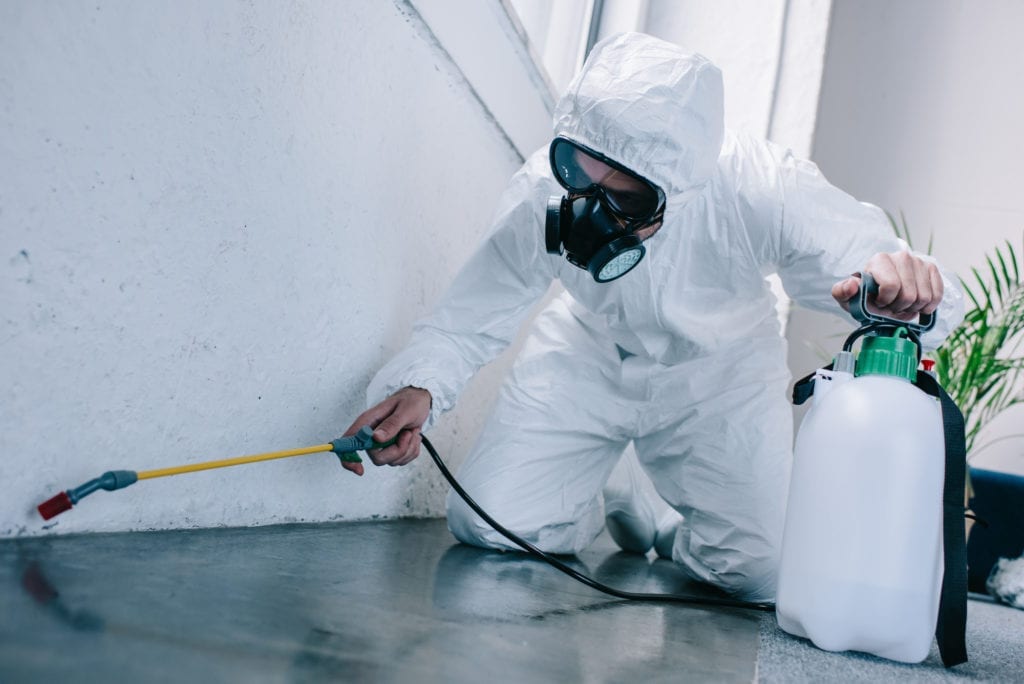
What to Expect from a Professional Pest Control Service Visit
Discovering pests in your home or business can feel overwhelming, leaving you with questions about how to regain control of your space. Whether it’s ants trailing through your kitchen, termites threatening your property’s structure, or rodents making themselves at home in your walls, pest control services are your best defense.
If you’ve never scheduled a professional pest control visit, you might be wondering: What actually happens during the process? This guide will walk you through everything you need to know about professional pest control services, from what they do and how to prepare to the different types of treatments you might encounter. By the end, you’ll feel confident and ready to take the next step toward a pest-free environment.
What Does a Professional Pest Control Service Do?
Pest control isn’t just about spraying chemicals and hoping for the best. Professional pest control services offer a systematic approach to identifying, eliminating, and preventing infestations. Their role goes far beyond addressing visible pests; they aim to uncover the root cause of the problem and provide solutions tailored to your specific situation.
What Sets Professionals Apart
You might think, “Why not just grab a can of pesticide and DIY this?” While DIY treatments can sometimes help, they often only address surface-level issues. Professional pest control technicians have the training, tools, and experience to deal with complex infestations. They understand pest behavior, know how to identify hard-to-spot infestations, and use methods that are safe, effective, and long-lasting.

How to Prepare for a Pest Control Visit
Preparing for a pest control visit is a bit like prepping for a guest—you want everything in order so they can do their job efficiently. However, instead of cleaning up for company, you’re clearing the way for a technician to access the spaces pests might be hiding.
Why Preparation Matters
The effectiveness of a pest control treatment often depends on the technician having clear access to problem areas. If furniture or clutter blocks potential entry points, or if food and items are left exposed, it can hinder their work or reduce the effectiveness of the treatment.
Steps to Get Your Home Ready
- Declutter High-Traffic Areas: Move items away from walls, baseboards, and corners. Pests often use these spaces as pathways or nesting areas.
- Protect Food and Utensils: Seal all food items in airtight containers and remove dishes or utensils from countertops. This ensures they’re not contaminated during treatment.
- Vacuum Floors and Surfaces: Clean up crumbs, spills, or residue that could attract pests.
- Pet Precautions: If you have pets, ask your pest control provider about necessary steps to keep them safe during and after the treatment.
What Happens If You Don’t Prepare?
Failure to prepare can mean less effective treatments, and in some cases, the technician may need to reschedule the visit. It’s worth spending a little time upfront to ensure the process goes smoothly.
Types of Pest Control Services You Might Experience
Pest control services aren’t one-size-fits-all. Different pests require different treatments, and professional technicians are trained to use the best approach for your unique situation.
General Pest Control
This is the most common service for households and businesses dealing with insects like ants, cockroaches, and spiders. Technicians typically apply pesticides around the home’s perimeter and inside problem areas like kitchens, bathrooms, and basements.
- Why It’s Needed: General pest control prevents recurring issues with common pests.
- How It Works: A combination of sprays, gel baits, and traps is used to eliminate pests and block entry points.
Rodent Control
Rats and mice are more than just a nuisance—they can spread diseases and damage property. Rodent control services address infestations using traps, bait stations, and exclusion techniques.
- Why It’s Needed: Rodents reproduce quickly, so early intervention is critical.
- How It Works: Technicians identify entry points and nesting areas, then use traps and bait to reduce populations while sealing entryways to prevent future infestations.
Termite Control
Termites can cause extensive structural damage, often without homeowners realizing it until it’s too late.
- Why It’s Needed: Early detection and treatment save thousands of dollars in potential repairs.
- How It Works: Treatment options include liquid termiticides, bait stations, or fumigation, depending on the severity of the infestation.
Bed Bug Treatments
Bed bugs are a growing concern for homeowners and businesses alike, especially in multi-unit dwellings or hotels.
- Why It’s Needed: DIY treatments rarely eliminate bed bugs entirely, as they hide in hard-to-reach areas.
- How It Works: Professionals use heat treatments, which kill bugs and eggs, or chemical sprays for a targeted approach.
Wildlife Removal
When larger animals like raccoons, squirrels, or birds invade your space, humane trapping and exclusion techniques are used to relocate them safely.
- Why It’s Needed: Wildlife can damage insulation, wiring, and structural elements.
- How It Works: Technicians trap the animals and seal potential entry points to prevent reentry.

What Happens During a Pest Control Visit?
If you’ve never had a professional pest control service at your property, you might wonder what to expect. A typical visit involves a thorough inspection, targeted treatment, and personalized advice for preventing future infestations.
The Inspection
The first step is a detailed inspection of your property. The technician will:
- Look for signs of pests, such as droppings, nests, or damage.
- Assess the severity of the infestation and identify hotspots.
- Determine entry points and areas that attract pests.
Treatment Application
Once the inspection is complete, the technician will apply the necessary treatments, such as:
- Pesticide sprays or powders.
- Traps or bait stations.
- Sealing gaps and cracks to block entry points.
Post-Treatment Advice
After the treatment, you’ll receive guidance on:
- When it’s safe to return to treated areas.
- How to maintain a pest-free environment.
- Follow-up treatments, if necessary.

Why Professional Pest Control Is Worth It
While DIY solutions may seem cost-effective, they rarely address the root cause of the problem. Here’s why hiring a professional is a better long-term solution:
- Expertise: Professionals know how to identify pests and apply treatments safely and effectively.
- Time-Saving: They handle the job efficiently, saving you time and effort.
- Long-Term Prevention: Beyond immediate results, professionals help prevent future infestations through targeted advice and follow-ups.
| Service Type | Methods Used | Common Pests Targeted |
|---|---|---|
| General Pest Control | Pesticide sprays, gel baits, traps | Ants, spiders, cockroaches |
| Rodent Control | Traps, bait stations, sealing entry points | Mice, rats |
| Termite Control | Liquid treatments, bait stations, fumigation | Subterranean and drywood termites |
| Bed Bug Treatments | Heat treatments, chemical sprays | Bed bugs, eggs |
| Wildlife Removal | Humane traps, exclusion techniques | Raccoons, squirrels, birds |
| Preventative Services | Regular inspections, perimeter treatments | All common household pests |
How to Choose the Right Pest Control Company
Finding the right pest control provider is just as important as addressing the infestation itself.
- Check Credentials: Ensure the company is licensed and certified to use pesticides.
- Read Reviews: Look for customer testimonials and online reviews to gauge reliability.
- Ask About Guarantees: Many reputable companies offer satisfaction guarantees or free follow-ups.
- Compare Costs: While affordability is important, don’t sacrifice quality for a lower price.
Dealing with pests can be stressful, but scheduling a professional pest control service is a smart and effective solution. By understanding what to expect during the visit, preparing your home properly, and choosing the right provider, you can enjoy a pest-free environment and peace of mind.
Whether you’re dealing with termites, rodents, or common household pests, professional pest control offers tailored solutions that work. Don’t let pests take over your space—reach out to a trusted provider today and reclaim your home or business.


Leave a Reply